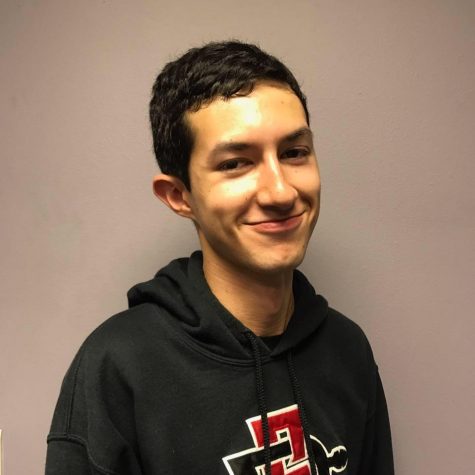UPDATED 11:15 p.m. Nov. 18 with comments from Alex Safian, associate director of the Committee for Accuracy in Middle East Reporting in America.
The Daily Aztec has removed a senior staff columnist after it was discovered that an outside lobbying group heavily edited at least one of her stories.
The writer, psychology and communications senior Talia Raoufpur, had been a columnist since October 2016.
On the morning of Nov. 17, Heriberto Prado Cañedo, a 2010 San Diego State graduate, posted screenshots of a Google document in the Facebook comments section of one of Raoufpur’s stories, entitled “Israel-Palestine conflict misrepresented in recent lecture at SDSU.”
The document — accessible through a link Raoufpur appeared to have accidentally placed in her story — showed a draft of the article with edits from Lia Lands, a communications associate at the Committee for Accuracy in Middle East Reporting in America, a pro-Israel media watchdog and lobbying group.
Lands did not return repeated requests for comment.
Alex Safian, associate director of the Committee for Accuracy in Middle East Reporting in America, said via telephone that he does not believe Raoufpur’s actions were unethical, and that her removal was unjust.
“We help student journalists because we are a journalism organization ourselves,” Safian said.
He also said he believes the organization should not be characterized as a lobbying group. Its website says it is a “media-monitoring, research and membership organization devoted to promoting accurate and balanced coverage of Israel and the Middle East.”
Raoufpur is not the only student journalist with ties to the organization.
At least five of the lobbying organization’s 2017-18 fellows are journalism students or writers for university publications. One is a former writer for a university newspaper.
The Daily Aztec was aware of Raoufpur taking part in a fellowship at the lobbying organization, as stated in a Nov. 17 blog post. However, allowing a representative to edit her story was a violation of The Daily Aztec’s policy against showing copy to anyone outside the organization.
Raoufpur admitted to receiving the edits from Lands.
The Society of Professional Journalists Code of Ethics states that journalists should identify sources clearly.
“The public is entitled to as much information as possible to judge the reliability and motivations of sources,” the code says.
Raoufpur failed to disclose that parts of her story were not her words, but those of Lands.
It also says journalists should avoid conflicts of interest, real or perceived, and disclose unavoidable conflicts.
Raoufpur’s use of an outside, pro-Israel organization to edit a story regarding Israel without disclosing the organization’s involvement was seen by The Daily Aztec as a conflict of interest.
Cañedo said the story initially seemed strange to him.
“I felt like (the article) was a little bit awkward in the style, where I’m like, are we even talking about the same event anymore? Clearly we’re not, because it’s this telephone effect where she wrote notes about what happened at the event, but then, we’re being peppered with the Israel talking points,” he said. “So then it comes across very awkwardly and contrived, and concocted. So to me, when I was reading it, I was like, this is just very weird.”
Cañedo said he began clicking on the links in the article, and that’s when the Google document was discovered.
“My reaction would be that this is a learning experience,” Cañedo said. “There’s something called journalistic integrity. I’m not versed in what it’s supposed to be. She’s supposed to be versed in what it’s supposed to be. And so this can serve as a lesson.”








